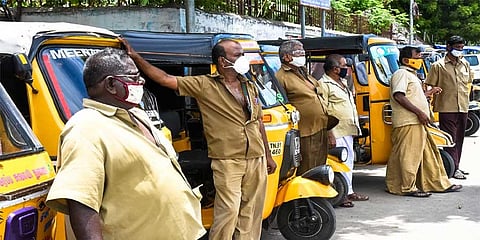

BENGALURU: Amidst the tussle between autorickshaw drivers and bike taxi riders, mobility experts say that both are unique modes of transport in developing economies like India and urge that both can have a complimentary role if they are regulated. They point out that the bike taxi concept is in practice in other countries for decades, aiding short trips and providing first and last-mile connectivity.
Of late, there have been many instances of auto drivers attacking bike taxi riders and urging the government to impose a ban on bike taxis. On the other hand, bike taxi riders are demanding a safe environment to operate bike taxis.
Urban mobility expert Shreya Gadepalli said bike taxis are a recent entrant in the Indian market, but have been around for decades across the developing world, especially Southeast Asia and Africa, as a popular informal transport service.
“Bike taxis manage to cut through traffic snarls, getting passengers to their destinations quickly, and at a low fare. No wonder they are gaining traction in Indian cities, especially among young men” she said.
“Bike taxis are a competition to not only auto rickshaws but also bus services which suffer from poor last-mile connectivity. Bikes are hard to compete with for short and medium-distance trips,” Shreya added but highlighted the need for regulation to ensure the safety of both passengers and drivers.
An expert from the Indian Institute of Science, Dr Ashish Verma, said, “Both auto-rickshaws and bike taxis are unique modes that are more typical in developing economies like India and other similar countries and not so much in developed economies.”
He lamented that both autos and bike taxis are unregulated, because of which, the tussle for livelihood is happening. He adds that if regulated regularly, both can have complementary roles.